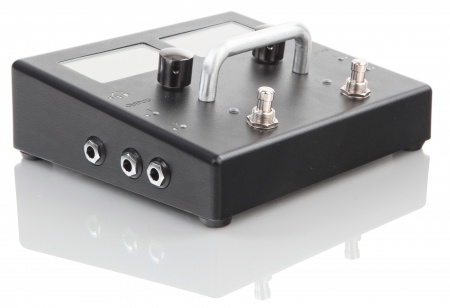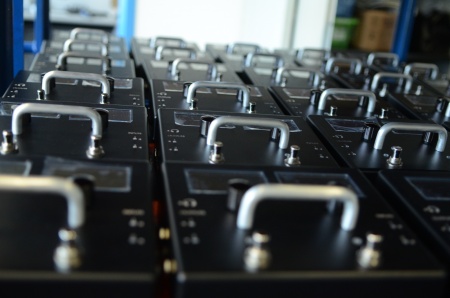Main Page
Welcome to the MOD Wiki, a publicly accessible and editable wiki for information related to MOD.
Documentation
All documentation on the MOD Duo, its web interface and its plugins is in the manual found below.
THIS MANUAL IS A WORK IN PROGRESS you are very welcome to contribute!
| Chapter 1: Device | In this chapter you can find all the information you need about the MOD Duo |
| Chapter 2: Web interface | In this chapter we talk about the graphical user interface, accessible through your favorite browser |
| Chapter 3: Plugins | This chapter gives information on the plugins that run inside the MOD Duo |
| Chapter 4: Warnings | Read this chapter if you want to be on the safe side of using the MOD Duo |
| Chapter 5: Resources | This chapter presents a list of resources that we think are worth checking out |
Support
There is a great community on our forum page that can offer you support on nearly all aspects of the MOD Duo.
Visit our forums at: http://forum.moddevices.com
It is also possible to e-mail us directly at: support@moddevices.com
Don't forget to checkout the Troubleshooting page to see if your issue has been solved already.
FAQ
How do I get to the web interface?
Connect the MOD Duo to your PC, open your browser and navigate to 192.168.51.1 if connected via USB or 192.168.50.1 if using Bluetooth.
Starting from version 1.2 you can also use modduo.local.
Can I use my MOD Duo without a computer?
Yes! The computer is only used to set up your device. When you are done, simply disconnect the USB cable and take your MOD Duo wherever you like.
Can I use another power supply for my MOD Duo?
We recommend using the official power supply, as it keeps the noise-level low. Using a power supply with identical specifications is possible, though not supported by us.
Can I hook up MIDI devices?
You can hook up external MIDI controllers to the MIDI-IN, MIDI-OUT or USB-A ports. If USB-MIDI is used, the device ports need to be added through the web interface.
Can I hook up multiple USB-MIDI devices?
Yes! Simply add a USB-hub to the USB-A port on the back of the MOD Duo, and plug your USB-MIDI devices into the hub.
Are the effects that run in the MOD Duo made only by MOD company?
No. The MOD Duo uses an open standard called LV2. It was created by the very active Linux Audio Community and hundreds of LV2 plugins are freely available, made by different independent developers.
Most of the plugins available on the MOD Cloud already existed when the project began and many more shall be created independently of MOD's existence.
Do I need a computer or other similar device to play with the MOD Duo?
No, you can take just MOD Duo to the stage and it works like any other regular multi-effects pedal.
The computer/tablet/phone is used to install new effects, create pedalboards (plugin arrangements with control assignments), upgrade the internal software and share your pedalboards on MOD Cloud.
Do I need to be connected to the internet to use the MOD Duo?
No. You can create pedalboards using the plugins that are already installed on your MOD Duo.
Internet connection is required only to install new plug-ins and to share or download other users’ pedalboards.
How is the MOD Duo updated?
The MOD Duo checks if it is updated every time you connect to the graphical interface. If there is an update available, you will be notified. You can then perform the update with a single click.
Our team of programmers and engineers work to develop new features and to improve existing ones. We launch new updates every month, which means that your MOD Duo constantly becomes more efficient and more stable.
Can I install plugins on the MOD Duo that are not available on the MOD cloud?
Yes. MOD gives full support to the LV2 standard and any working LV2 plugin will work in the MOD Duo. Installation is done using our free SDK.
How many effects can I use simultaneously on the MOD Duo?
The only limit to the number of pedals you can use simultaneously is the amount of processing they require. Certain pedals, such as Pitch Shifters and Tube Emulators, carry out numerous mathematical calculations and, therefore, require more processing. Others, such as delays and chorus, are mathematically simple and require little processing. Therefore, you may have problems if you try to use several Pitch Shifters on the same pedalboard. To help with this, the MOD Duo has a CPU usage indicator that alerts the user when the pedal board they have created is overloading the equipment.
How many plugin parameters can be adjusted via the controls on the MOD Duo?
You have 4 actuators at your disposal: two footswitches and two knobs. The switches only allow you to control one plugin at a time but can be used to switch between pedalboards. The knobs, on the other hand, can be pushed like buttons so that you can address and control a virtually infinite amount of plugin parameters with each one, though it might not be very practical. Each musician can find the perfect balance between the numbers of actuators, the numbers of parameters to be controlled and the pedalboard banks that fit their needs.
How much latency is expected in the MOD Duo? The MOD Duo is designed to present the minimum possible latency. We use specific PCBs and circuits for audio processing, producing a latency of approximately 5 milliseconds, which is imperceptible to humans. Our engineers are working to further reduce this latency.
Does the MOD Duo have a phantom power button for condenser microphones?
No. The MOD Duo has a MIDI input and two mono-jack inputs for connecting guitars, basses and dynamic microphones, but a condenser microphone could be connected via a pre-amp with phantom power.
Does the MOD Duo run VST effects?
No. The format used by the MOD Duo is LV2, which is similar to VST, but released under an open-source license, avoiding the license hassles related to VST and allowing multiple developers around the world to create effects for the MOD Duo.
Are plugins free of charge?
Yes, currently all plug-ins available on the MOD Duo are free. We currently have close to 200 plug-ins in our library and new plug-ins are added every month. Soon we will also have a store where developers from around the world will be able to sell their effects plug-ins, encouraging these programmers to spend more time creating new and unusual plug-ins.
What instruments can I use with the MOD Duo?
The MOD Duo is designed to work with a big variety of instruments. People use the MOD Duo with anything varying from regular electric guitars to wind-instruments like the trombone. A general rule of thumb: if it can be plugged in to a mono jack or MIDI port, it works with the MOD Duo.
How many instruments can I use simultaneously on the MOD Duo?
The MOD Duo has two completely independent analog inputs and outputs, as well as support for MIDI controllers with virtual instruments. This means that you can use two instruments that output an analog mono signal concurrently. On top of this, it is possible to add any number of virtual instruments that are controlled by external MIDI controllers.
Does the MOD Duo support MIDI?
Yes, the MOD Duo has great MIDI-connectivity. There is support for old-school MIDI over DIN-cables, as well as USB-MIDI over USB-cables. It is even possible to add a USB hub to the MOD Duo to expand the amount of USB connections that you can make.
How long is the MOD Duo's warranty period?
Besides the 90-day money-back guarantee period, the MOD Duo has a one-year warranty, provided the problem is not caused by misuse.
Our support team can also help you with any queries, regardless of when the MOD Duo was purchased.
Plugin Development
To get started, check out this wiki page.
You can find more resources in chapter 5 of our manual.
A longer, more detailed guide is currently a work in progress.

